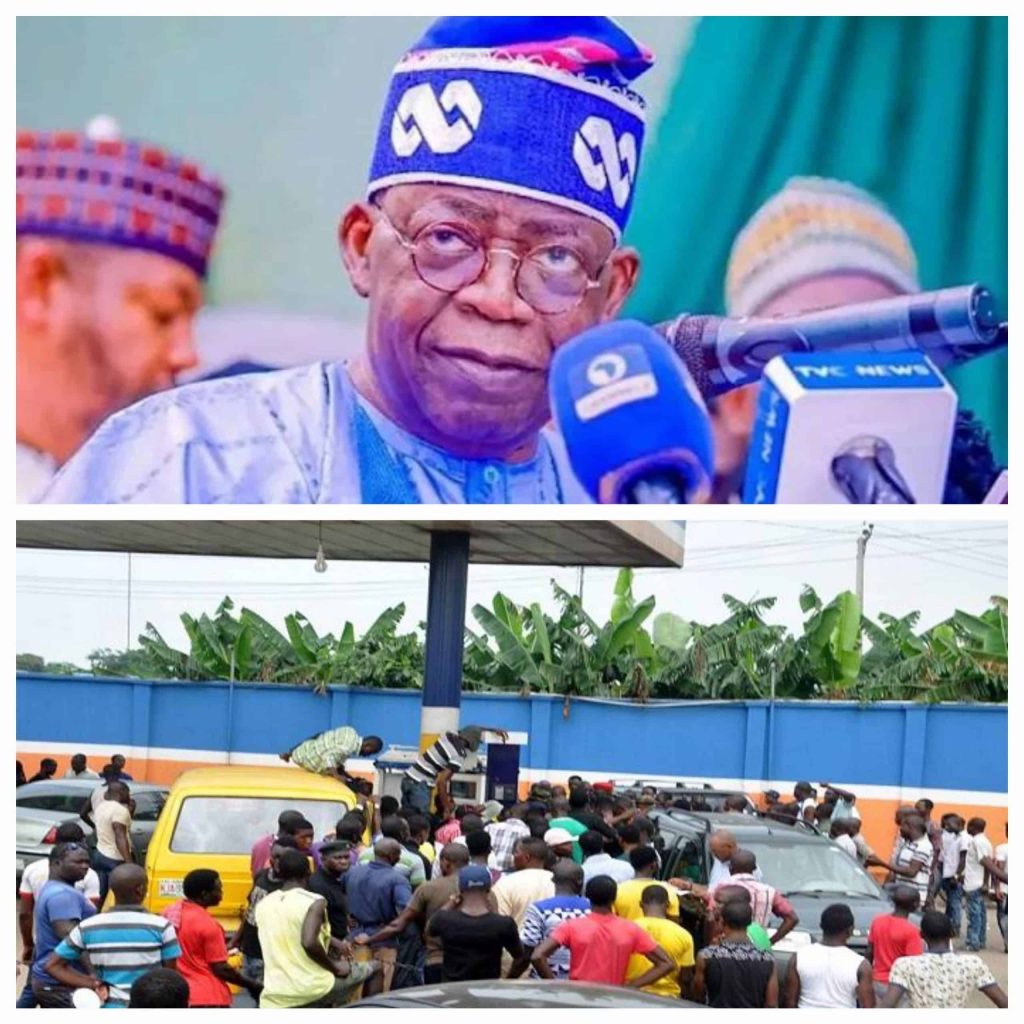
As Nigerians continue to groan over President Bola Tinubu’s announcement on fuel subsidy removal, OsunDaily News brings you the latest update on Petrol scarcity, fuel subsidy and Govt/citizens’ reactions.
The National Industrial Court has granted an interim order restraining the Nigeria Labour Congress (NLC) and Trade Union Congress (TUC) from going on strike from Wednesday as planned, until the determination of the motion on notice.
Justice O. Y. Anuwe issued the order today and adjourned further hearing till 19 June.
The judge was ruling on an ex-parte motion filed by the office of the Attorney General of the Federation (AGF) which was moved by Mrs. Maimuna Lami Shiru, Director Civil Litigation, Federal Ministry of Justice.
Justice Anuwe said the order shall remain in force pending the hearing and determination of a motion on notice dated June 5 which was filed by the Federal Government through the office of the AGF.
The judge said her action was informed by the argument by the Federal Government’s lawyer that the strike, if allowed, will occasion incalculable damage to the nation.
The Judiciary Staff Union of Nigeria (JUSUN) has announced its decision to join the industrial action called by the Nigeria Labour Congress (NLC) over the removal of fuel subsidy.
OsunDaily News reports that President Bola Tinubu, during his inauguration, had announced the end to fuel subsidy.
The Nigerian National Petroleum Corporation Limited (NNPCL) had directed its retail station to jerk up the price of fuel per liter from N197 to between N488 and N570.
The Nigeria Labour Congress (NLC) subsequently declared a nationwide strike, with effect from Wednesday, except government reverses its decision.
In a statement on Monday, JUSUN’s General Secretary, M.J. Akwashiki, directed all branches and chapters of the union to begin nationwide mobilization and withdrawal of service from Wednesday.
The Nigerian National Petroleum Company (NNPC) has made a move to terminate its crude oil swap contracts.
It will instead opt to pay cash for petrol imports, according to a report by Reuters.
This marks a shift in the handling of the country’s oil and gas sector.
The NNPC’s Group CEO, Mele Kyari has announced that private firms could start importing petrol as early as June.
This comes as the NNPC intends to pay for its petrol purchases in cash by ending its crude swap contracts.
Kyari told the platform, “In the last four months, we practically terminated all direct sale direct purchase (DSDP) contracts. And we now have an arm’s-length process where we can pay cash for the imports.”
DSDP contracts allow for the sale of crude oil to refineries, which then supply the NNPC with an equivalent value of petroleum products.
The decision to terminate these contracts followed a call from the House of Representatives to suspend all DSDP contracts in response to the recent removal of the petrol subsidy by President Bola Ahmed Tinubu’s administration.


